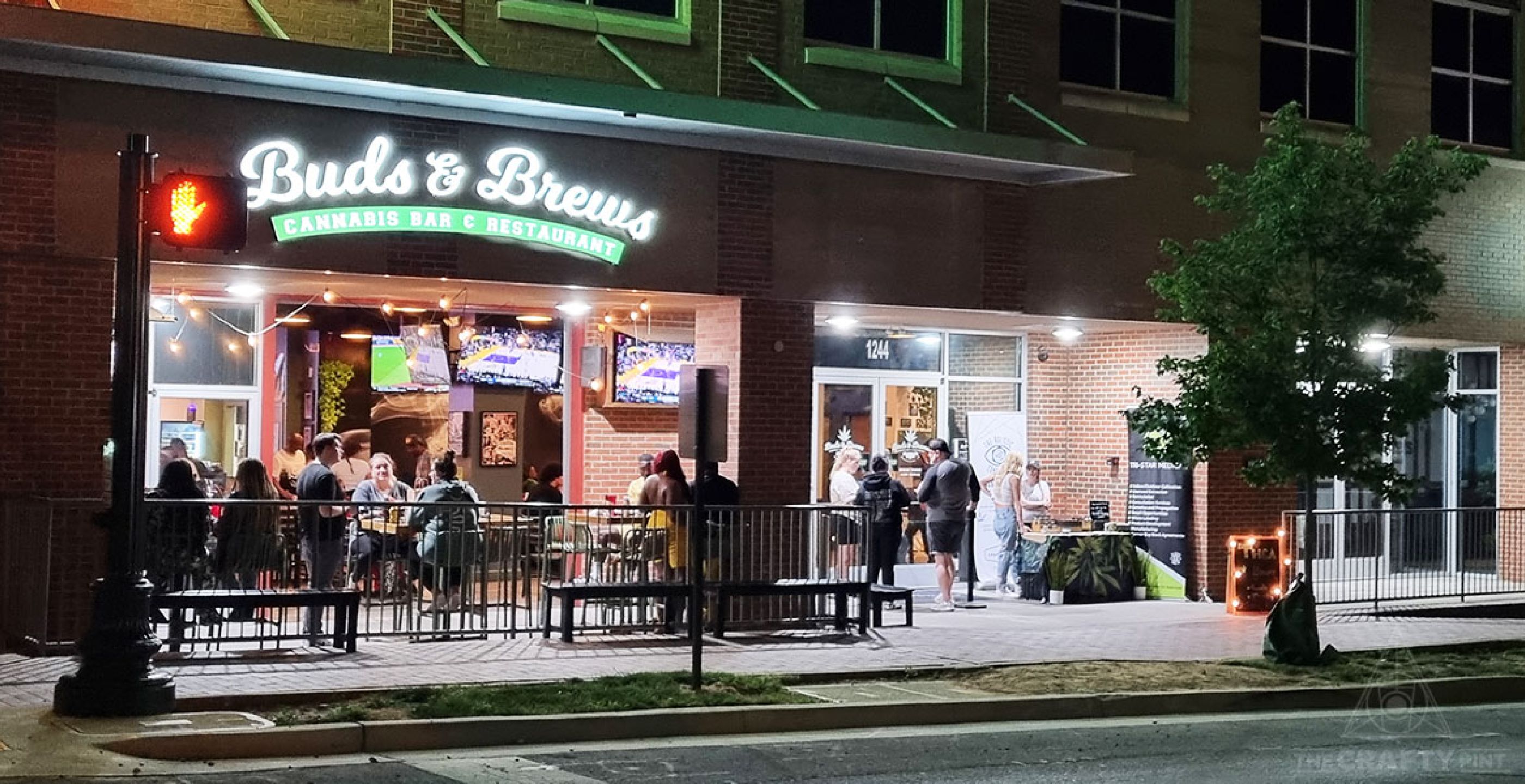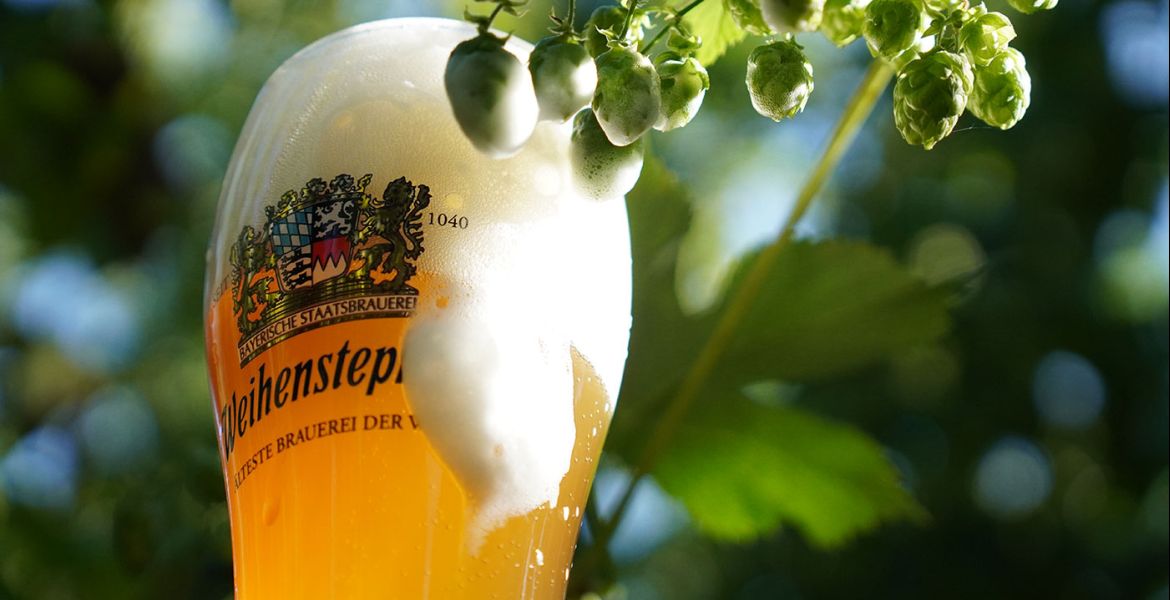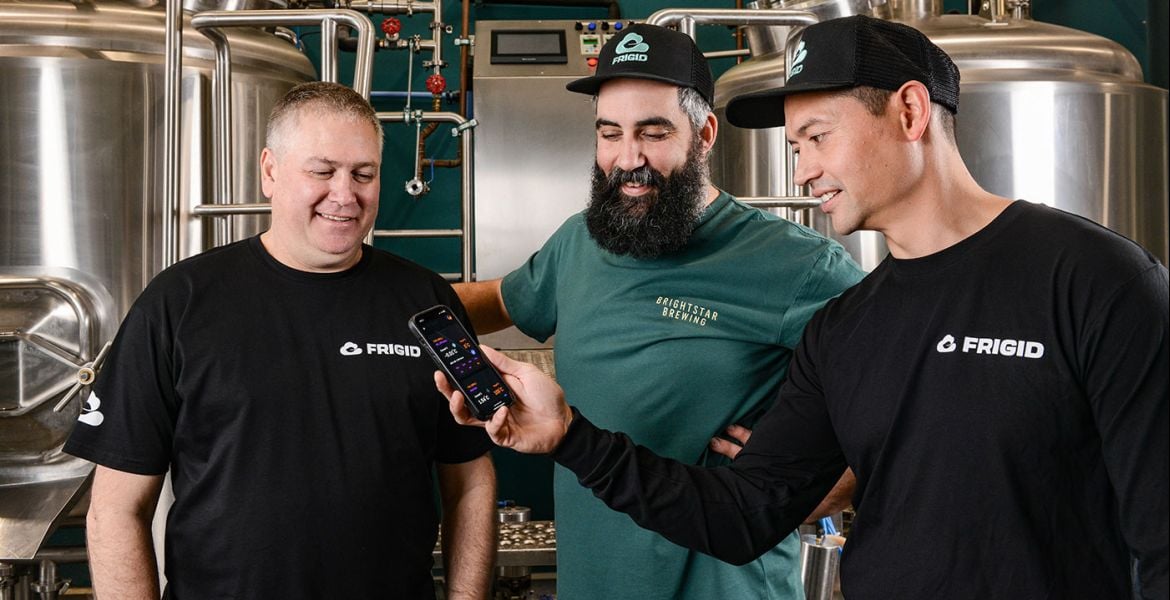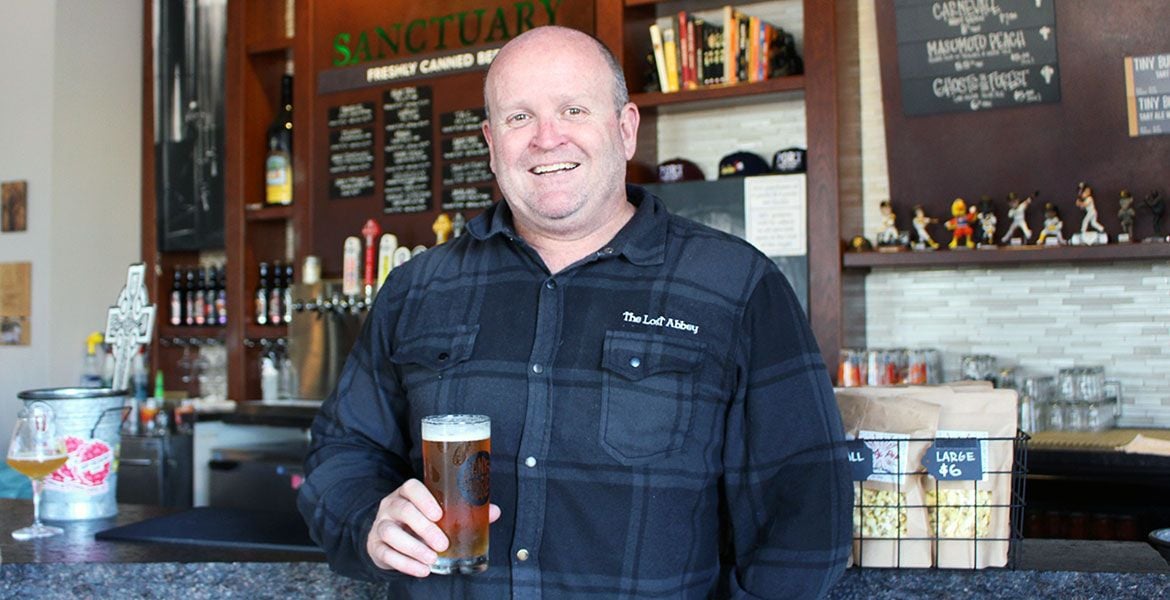As an Australian, there’s nothing normal about buying weed in California. You walk into a store with a name that vaguely sounds like it sells organic produce or skincare products only to be greeted by a staff member with a broad smile who's eager to walk you through a dozen varieties with names like Kush Mountains, Space Pop and Grape Ape.
“Are you aware of our loyalty program?” one staff member asks me.
I don’t think the teenagers in front of Flinders Street Station ever offered such a service.
You don’t even buy weed, either; you buy flower, gummies, wax, vapes or, potentially, a soft drink, alcohol-free beer or sparkling water made with THC.
Over several years, THC – the psychoactive substance within cannabis that makes you feel high – has been legalised for recreational use across America. So too has the plant’s other well-known cannabinoid, CBD, which is also used to treat a wide range of medical concerns, including depression, inflammation and seizures.
Federally, it’s a plant that remains unlawful and state legislation is complex, which leaves business owners in the booming industry to navigate a motley web of laws.
Keith Villa is one such business owner. For 32 years, he worked at Molson Coors, where he focused on new product development; quite famously, Keith created Blue Moon. After leaving the major brewing company in 2018, he soon started CERIA Brewing Company with his wife Jodie – a lengthy research project both in terms of legislation and brewing.
Keith’s home state of Colorado was the first, alongside Washington, to legalise the recreational use of cannabis. It’s now legal in 23 states, as well as Washington DC, but, in reality, THC is openly sold in far more parts of the country (including conservative Tennessee, as the picture of a Nashville restaurant at the top of this article shows). But even between states where THC is widely available, due to federal laws you can’t ship cannabis products across state lines.
“Since it’s federally illegal, it cannot cross a state border,” Keith tells me.
“For all intents and purposes, the border is invisible, you just drive through it. But still, as a producer, we cannot cross that line.”
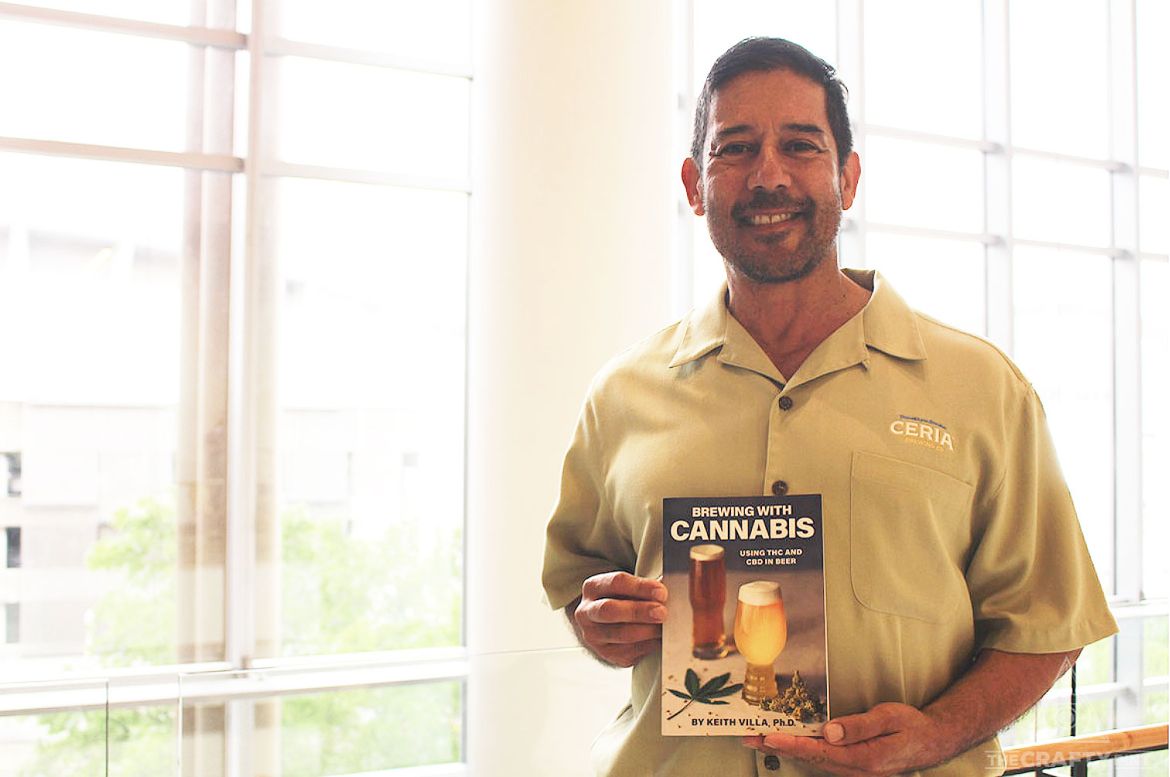
What remains unlawful everywhere is adding any cannabinoid (which includes THC and CBD) to any kind of alcohol, thus CERIA’s range of beers is alcohol-free.
Beyond his years of experience as brewer, Keith says his interest in creating beer-like cannabis drinks came about due to the decline in smoking as well as the fact that people have long wanted, and continue to catch up with a beverage in their hand.
“The main thing we wanted to do was create a product in the cannabis industry that people could enjoy and that was socially acceptable,” he says.
Although cannabis is in the same plant family as hops, Cannabaceae, brewing with it isn’t straightforward. For one, adding them like hops would be tremendously expensive due to the amount of product you lose.
“They will tend to stick to the wall of the brew kettle,” Keith says.“Then what little bit is left gets transferred over to fermenting, and then some of them will stick to the yeast. Then you go to the filters and it gets stuck there too, so by the time it gets into the package you’ve lost maybe 70 or 80 percent of it.”
Keith says CBD and THC don’t naturally mix with beer either, meaning they need to be made water soluble or emulsified – or forced together with an agent – so they become one. (If you’ve ever messed up making Hollandaise, you'll have an idea of what he's talking about.)
“You have to figure out how to get cannabis into the beverage because cannabis is an oily substance that doesn't go into water-based beverages,” he adds.
It’s a process Keith covers in great detail in his book Brewing With Cannabis, which was published by the Brewers Association in 2021. The book covers the history of cannabis and brewing in America, alongside techniques for adding it hot or cold side when brewing, and recipes guiding homebrewers wanting to make full-strength beer with marijuana (which includes a substantial warning in the prologue).
Getting to the stage they're at now hasn’t come without its challenges for American brewers, but Keith thinks the learnings they've made leaves craft breweries in other countries well-placed to hit the ground running if and when local laws changed.
CERIA’s THC-infused products are called Grainwave and Indiewave, which they also make as alcohol-free beers sans the skunk. Grainwave contains five milligrams per serve of THC, Indiewave ten milligrams of both THC and CBD, with the THC content in either beer considered to be lower doses in terms of how high they make you.
“We wanted that same experience, where if people want to relax while watching football they can drink one, or you could drink a couple and enjoy yourself,” Keith says.
“Five milligrams gives you a very relaxed feeling similar to drinking a lighter beer. Ten milligrams gives you the feeling of drinking something like an IPA that has a higher level of alcohol; you drink one and you get a buzz and you drink two and you start to feel it.”
The additional CBD in Indiewave is designed to balance the impact some users can feel with higher doses of THC.
“At ten milligrams, there are some people who start to feel a little bit anxious,” he says. “They get high but it also affects other parts of the brain where they feel a little bit anxious and nervous. So, to counter that, what we do is add ten milligrams of CBD at the same time as the THC.
“You get that high, but the tendency to have that nervous reaction goes way down.”
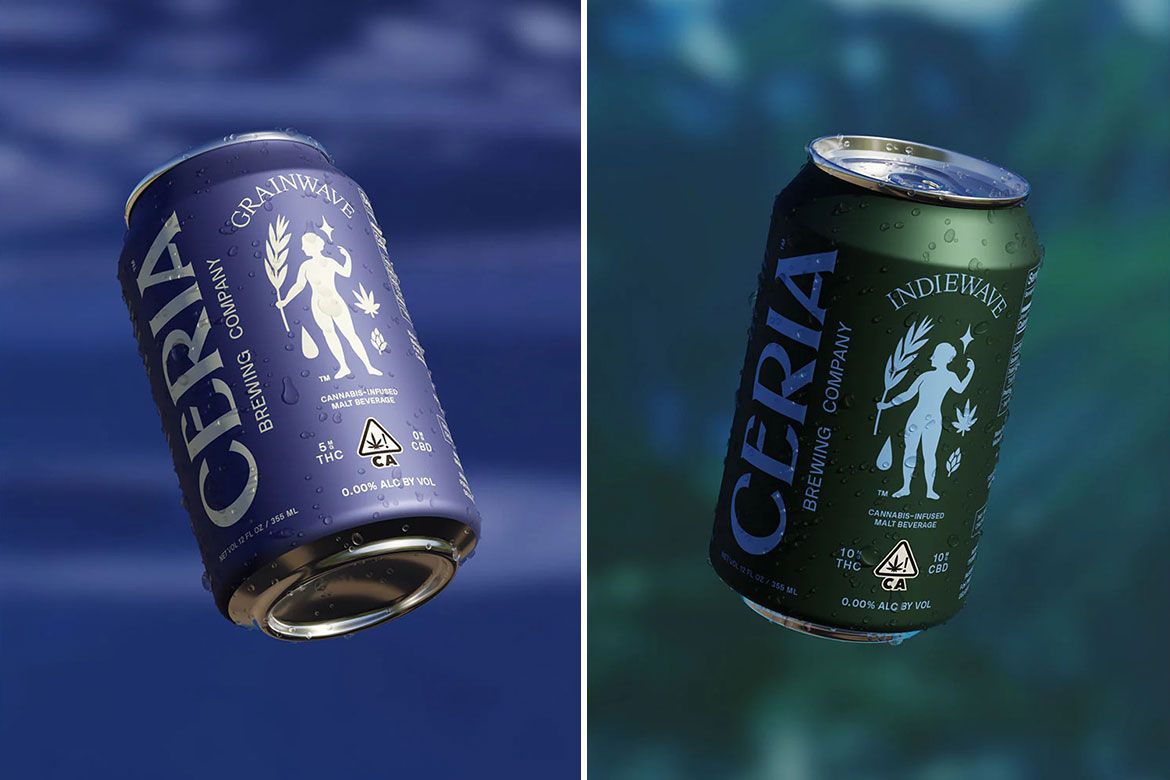
Making Dope From Rope
Although states like California and Colorado have long been considered progressive when it comes to drug reform, widespread changes have occurred in America since 2018 and have come from unlikely corners.
The Hemp Farming Act of 2018, often just referred to as the 2018 Farm Bill, was championed by leading Republican Mitch McConnell. The Kentucky senator was eager to promote the agricultural benefits brought to farmers in his home state and stewarded the change. The idea was to allow farmers to grow “rope, not dope” so hemp plants that had less than 0.3 percent Delta-9 THC (which you find in abundance in weed but not in hemp) would no longer be considered as serious a drug under federal law.
However, the law had nothing to say about Delta-8, which is sourced from hemp but can be converted to increase its psychoactive impact. Thus innovation in the means of getting people high flourished. What's more, Delta-9 within hemp can also be processed to make it stronger and more psychoactive, and it's a loophole which allows Buds & Brews pictured at the top of this article to sell THC-infused sauces alongside fried cheese curds in Nashville.
In Joe Wells' home state of Minnesota, lawmakers effectively legalised it by accident. Midway through 2022, the new legislation permitted people to buy and sell edibles or beverages with up to five milligrams of THC per serving provided the THC came from hemp.
Joe is head brewer at Fair State Brewing in Minneapolis and, following those changes, the brewery started making non-alcoholic seltzer with THC under the Chill State banner. While their products stem from hemp, they’ll still have the effect you’d expect, with both Delta-8 and 9 available in Minnesota if they’re enjoyed in the right form.
“Because industrial hemp still has a little bit of THC in it, you can extract that to make an edible product and still get people high,” he says.
“Minnesota basically legalised hemp-based edibles. So not smokeable product, and the THC has to be derived from hemp instead of cannabis.”
Since those laws came into effect, and since speaking to Joe, Minnesota’s laws have relaxed further to allow for the possession of flower and an Office of Cannabis Management has been set up to oversee the regulation of cannabis sales.
The complexity around the legal framework and shifting sands was a major point of discussion during a panel discussion at the Craft Brewers Conference (CBC) entitled What’s Brewing In Weed: How Cannabis is Changing the Beverage Industry. The National Cannabis Industry Association’s director of government relations, Michael Correia, said Congress had views of low-potency hemp being grown to make lotions and clothes, but that’s not how it worked out.
“They didn't know that entrepreneurs are out there, they didn't know that the science was out there,” he says. “And what we've determined in these years since is you can synthesise this low potency legal product and turn it into an intoxicant.”
Or, as Joe described it on the same panel: “The difference between hemp and cannabis is all in the dreams of lawmakers and politicians. It's the same plant, it's the same chemical.”
Speaking to The Crafty Pint at CBC, Joe said the change in Minnesota has created a unique situation for both beverage makers and drinkers which are more relaxed than other states where straight-up cannabis is legal.
“It allowed basically anyone to produce the product,” he says. “So we can produce it at our brewery, sell it at our taproom or at bars or restaurants. And grocery stores too – pretty much anywhere except liquor stores."
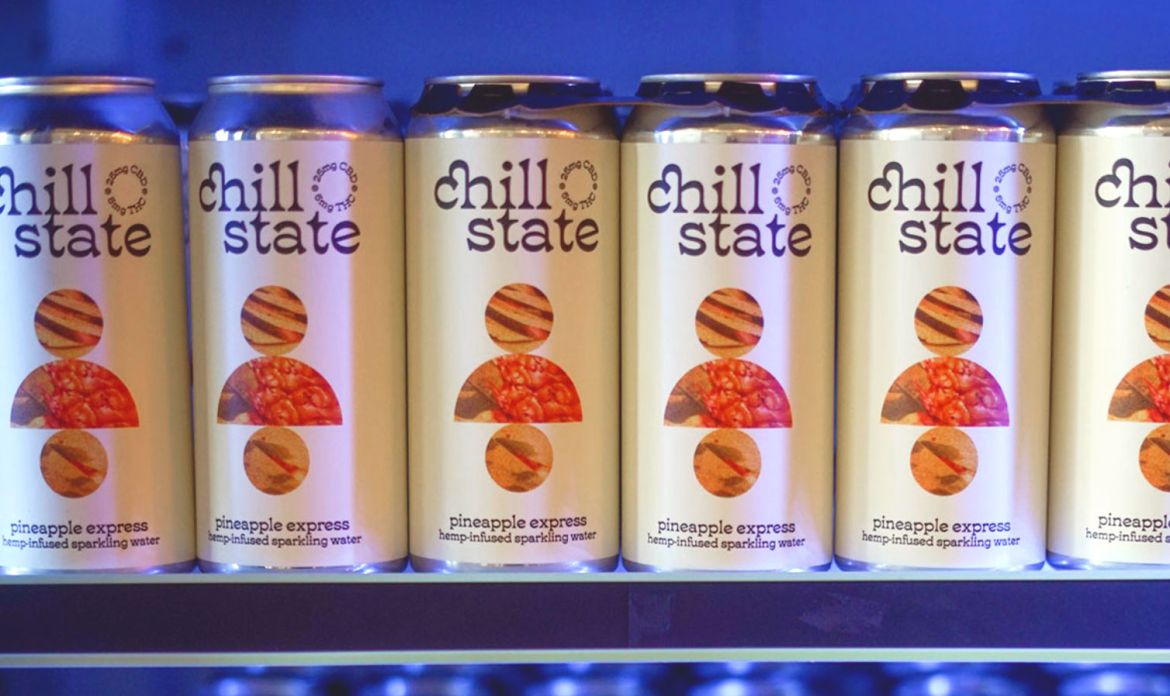
Although alcohol and weed still can’t go into one drink, Joe says there are bars in Minneapolis where you can enjoy them together. Or, to use the lingo, you can cross-fade legally.
“You can get a hemp seltzer that’s got five milligrams THC in it, and you can get a cocktail, sit down and drink them together,” Joe says.
The unusual regulatory framework means enjoying THC in public has quite quickly become normalised. In other states, dispensaries’ bestselling products tend to be those of the highest strength because a lot of people don’t want to visit a dispensary all the time, so they just buy their high for the month and return frequently.
So, while drinking a THC seltzer in a bar is the least efficient way to get high for your money, Joe says he sees a broad cross-section of customers buying it from their taproom and elsewhere.
“There's cocktail bars in Minnesota that are mixing THC seltzers with fruit juices, bitters, and garnishes and having these non-alcoholic cocktails that have THC in them.”
Joe describes its success as like a “rocket ship”, one that's been a major boon for the craft brewery, which, as well as making THC products, works with around half a dozen other cannabis and drinks businesses. Their first quarter this year was their second busiest ever – a strong sign of consumer demand given it was the middle of the US winter.
“The market's just exploded," he says. "There’s a lot of demand for it and people are excited.”
But, as with the growth of seltzers, there’s an underlying concern surrounding the rise of legalised cannabis. Will it eat into craft beer’s market share at a time when growth is already such a challenge?
As a brewer, Joes tells me he enjoys making interesting products and thinks that, if the customers are interested, he wants to be making exciting products in the way they always have as a craft brewery. At Chill State, they use terpenes: products that create the flavour and aroma of weed and can easily be added to beer. It’s a product that’s becoming increasingly popular within the craft brewing industry and one Joe uses in non-THC Fair State beers too, such as their super-dank West Coast IPA, Legalize Big Doinks.
“We're making products that our customer base wants to have,” he says. “If our customer base wants a hemp seltzer then we can make it and we can make it interesting. I've no qualms with providing people with the social beverage of their choice.”
In an era when consumers are increasingly polygamous in their drinking, he says it reflects those who might want alcohol one day, THC the next.
“People consume one or the other or they consume them both through different pathways,” Joe says.
It’s a view reflected by Michael during the CBC panel, who pointed out that people have long enjoyed marijuana – it’s just that legalisation hasn’t allowed for new products to flourish.
“The consumers have always been there on cannabis,” he told a packed conference room. “And I think the industry is providing delivery devices for consumers.”

The cannabis industry is also far broader than beer, with drinks designed to help you sleep at night or focus during the day, like the Happi range Chill State help produce for another business. The wider industry takes in medicine, soaps, lotions and teas to help you relax alongside all the stuff that gets you high.
“On a regulatory side, that's one of the challenges that [lawmakers are] navigating right now,” Michael said, warning that regulatory uncertainty will remain a challenge for a long time to come, despite the industry actually seeking more and better regulation.
“I think cannabis is the only industry in America asking Congress to regulate them,” is how he put it.
The crossfade between craft beer and cannabis has seen plenty of money pouring in too. Over the last few years, Tilray Brands, one of the world’s largest cannabis companies, has been buying up craft breweries. Today it owns Sweetwater, Alpine Beer, Green Flash and Montauk, and is the ninth largest craft brewer in America as defined by the Brewers Association.
Speaking on that same panel, Tilray’s President of US Beer, Ty Gilmore, said that, although they don’t touch recreational cannabis in the US due to it not being federally regulated, they were well-positioned as legislation changes.
“When cannabis becomes federally regulated,” he said, “we firmly believe now we have a portfolio of brands that are regional, very big and to scale.”
The ongoing challenges of regulation and legality remains a continual concern for Keith despite his three decades in the beer business and a PhD in brewing. He points to a long history in which cannabis was outlawed for racial and taxation reasons more than any real concern for health; compared to America's other prohibition, this one has taken far longer to come to an end.
“These laws are so antiquated," Keith says. "They must be brought into modern times and follow the science; these laws were never based on science, they were based on opinion."



